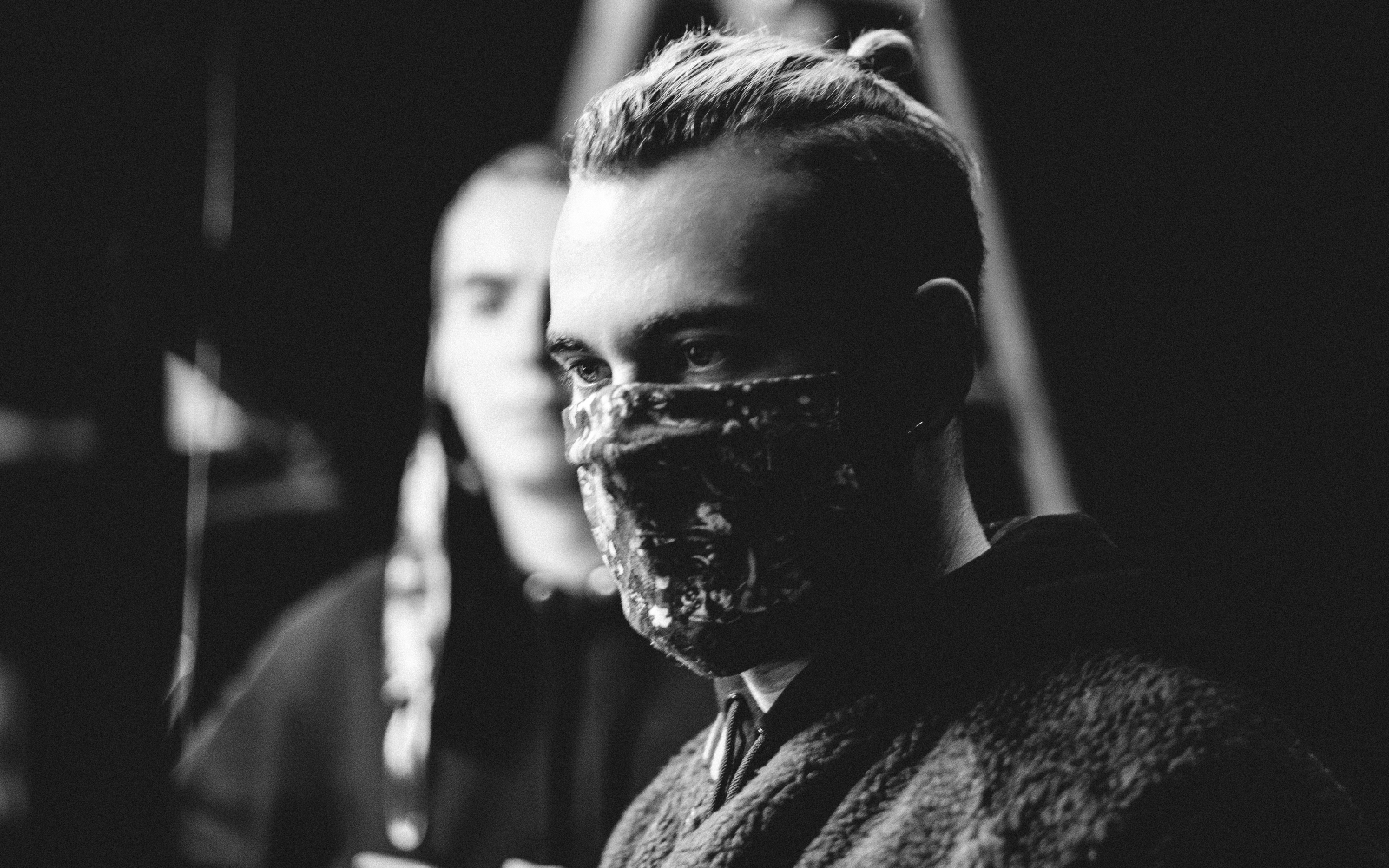
‘London’s streets are paved with gold’, or so the saying goes. For aspiring creative minds, how much truth does that tongue-in-cheek promise once made to Dick Whittington still hold?
We’re trying to find out. In this new series, illuminating the world of London’s emerging creatives and explaining how they got there, Lottie Leseberg Smith spends a day with Oscar J. Ryan – a London based photographer and director.
Three years ago, I met Oscar J. Ryan at university. I presumed he, like seemingly everyone else we knew, would soon embark on a career stationed behind a desk. Thirty-six months on, I’m at Park Village studios watching him shoot Sony Music’s next big star, Lewis Thompson, ahead of his debut project, ‘Take Me Back’, with David Guetta.
When I arrive, Oscar bounds over to me and sweeps me up into a hug. In almost the same motion, he is back to snapping hit ghost-producer Thompson, who’s coming out of the shadows having been signed as an artist in his own right. It’s an eight-hour day, with eight outfit changes and eight lighting changes. Apparently this is simple enough, and is in fact a “short” day for Oscar.
“That’s laavley mate!” he cries. “Match your feet to your body.” Me and six others – a stylist, a marketing director and lighting assistants – all watch on as Oscar twirls around, Lewis entirely at ease before him. It’s a joy to watch. It’s a little bit magical, and I suspect you might have to have that bit of magic to do this; to turn real life people and their lives into fantasy images.
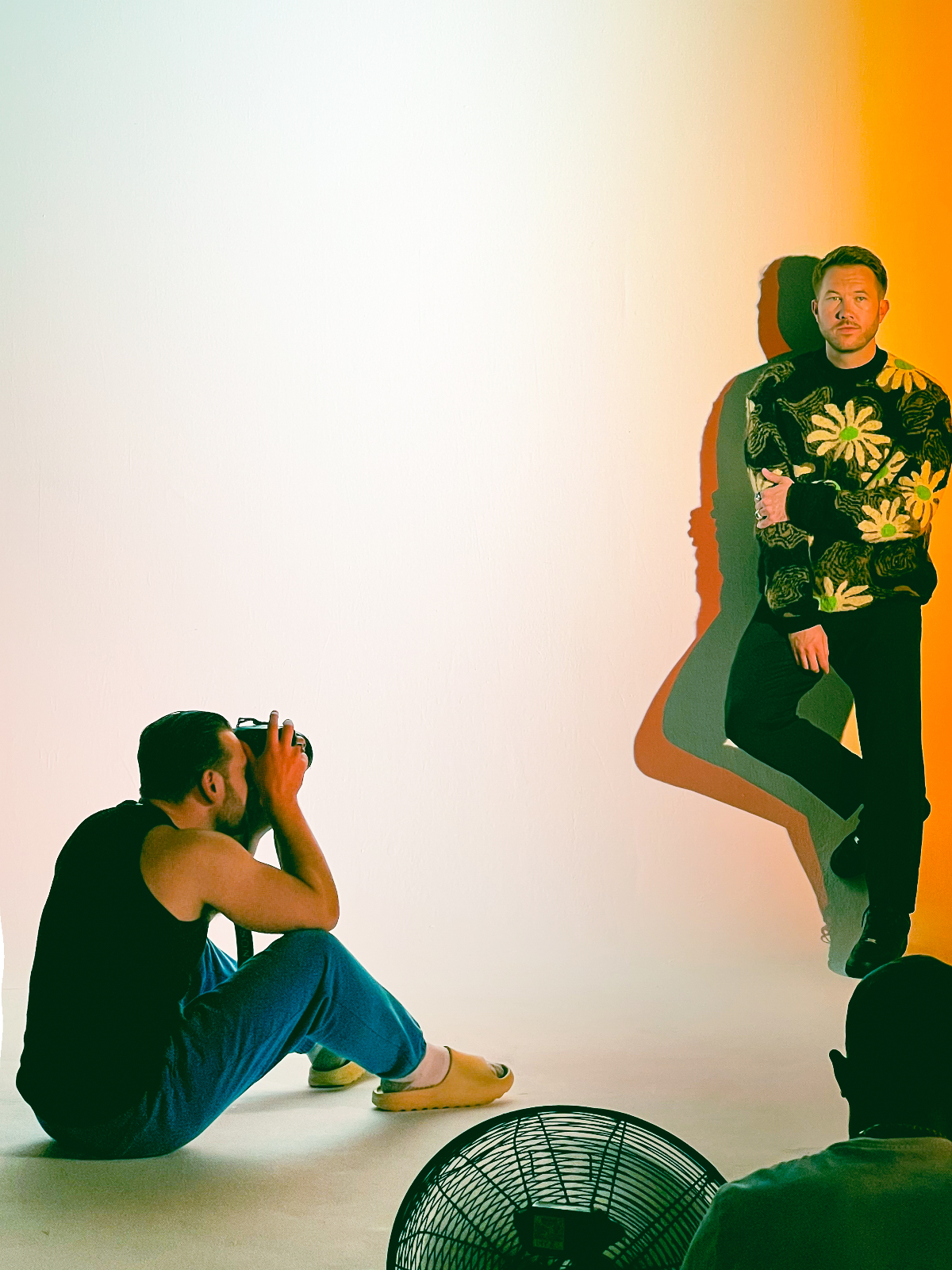
So where did it all go right for Oscar? I find, as I speak to him more, the magic’s just one small component. Confidence, the ability to be detail-oriented, and work ethic, are all vital.
Often in the creative industry, you hear about the importance of luck; how you have to get lucky to get what you want. When you work hard, you make your own ‘luck’ – something Oscar is good at, and something you could even say he started with.
Last summer, Oscar was on the set of a KSI and Jay1 video when he unknowingly overheard the Head of Marketing at Sony talk in a thick West Country accent, not too distant from Oscar’s own. They got chatting. Two weeks later, he gave Oscar a call he didn’t think he would get.
Luck? Or the fact that Oscar reached out, took what he wanted, showed the Head of Marketing his work and didn’t stop there? In Oscar’s own words, “Nobody is going to give you a job. You have to knock down the door.”
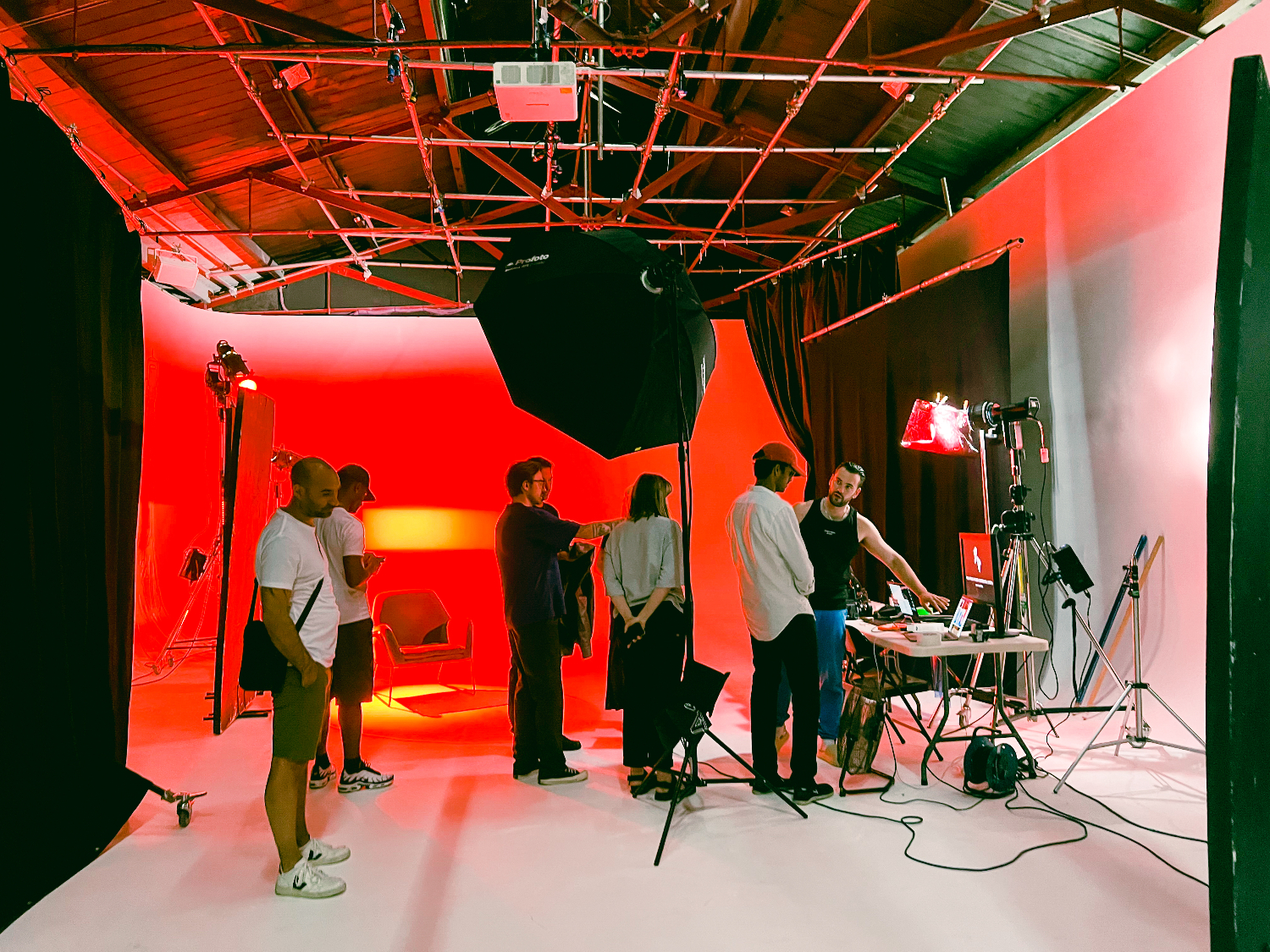
Again, it’s more than the right place at the right time and more specific than just hard graft – there’s also personal sacrifice. Because of the nature of being a creative freelancer, and in Oscar’s case, a photographer and director, the job has to take precedence. “At the drop of a hat, I’ve cancelled on birthdays, not been there for my friends, had to come home early from holidays,” he explains. “I will literally move the earth, work is always the priority because it’s feast or famine.”
When Oscar arrives home, he can’t be alone. “I need to speak with people and unwind and distract myself, otherwise I’ll sit there and work. I find it really hard to switch off. If I’m on my own I’ll either work or feel guilty for not working. Being busy is the best. I’m tired but I love it.”
“How often do you pinch yourself?” I ask.
“I always say, ‘It beats working,” he chuckles. “This isn’t a proper job, is it?” I guess when you do what you love, what they say is true, you’ll never work a day in your life.
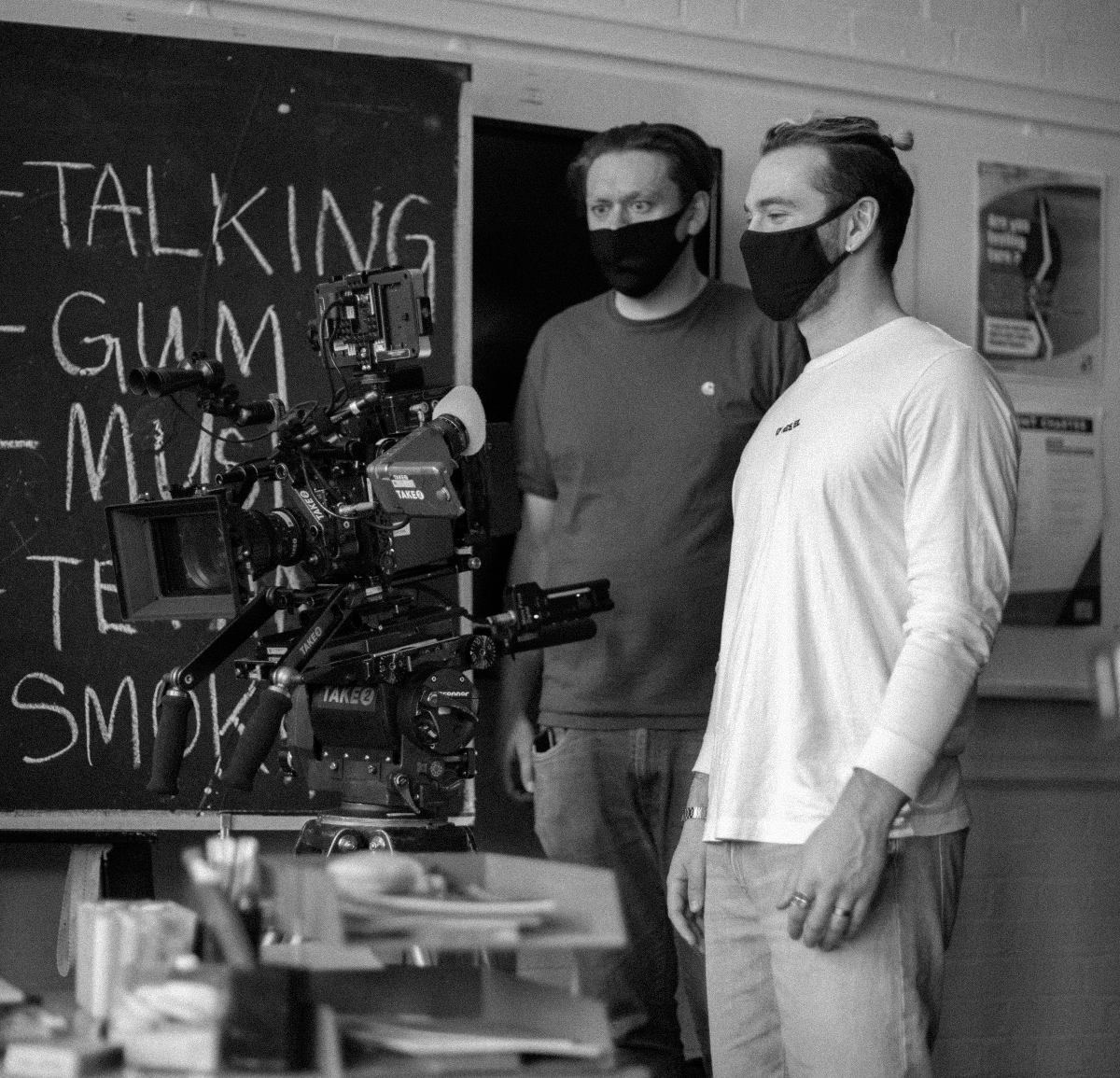
I realise hard work is a pretty blanket piece of advice, so I sit down with Oscar and ask him to break it down to me. How did someone, who two years ago was snapping pictures of students in Edinburgh, end up here?
The mistake is in thinking it started two years ago: From pot washing at 15; to pulling pints at 18; to playing rugby in Australia and editing sport highlight reels and video analysis for England Rugby at 19; to studying at Edinburgh University at 20 – it’s never as simple as it seems.
“By my fourth year of uni I was ready to get on with it. It had become an obsession.” ‘Getting on with it’ entailed moving to London to direct his first music video for ex-Oasis manager Alan McGee.
“I get jealous that people found their calling in photography at an earlier age than I did. I wish I had been doing this forever. However, I always have to remind myself that actually just living your life outside of creating stuff has just as big an impact on your work. The way you have lived your life until that moment has moulded the way you see and think. I don’t think you should feel bad about your journey. Your personality is your signature.”
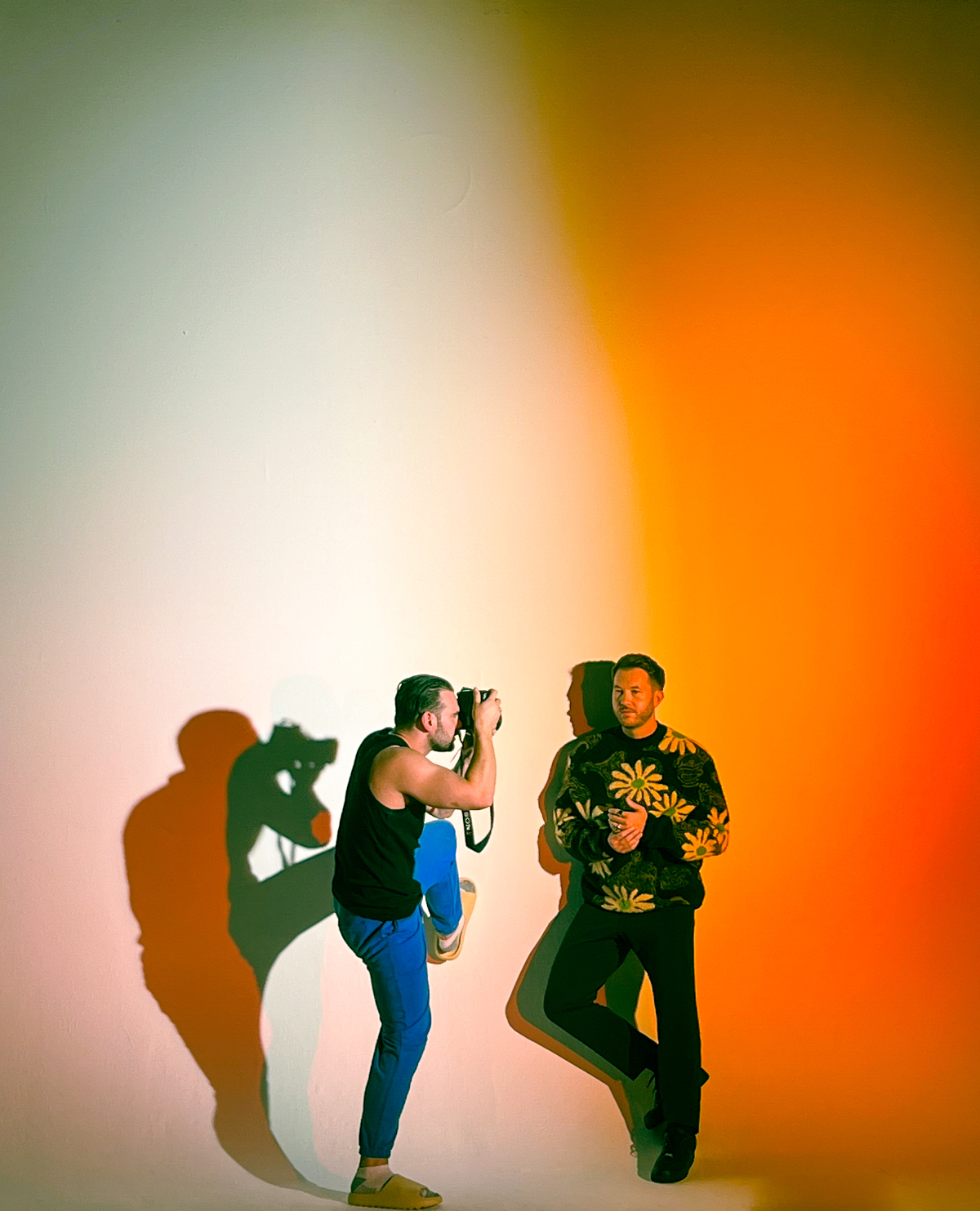
When Oscar first thought he wanted to go into film, he was growing up in a small village where people typically went down different routes. He went to school on a sports scholarship and was promptly swept into that particular stereotype. He wasn’t seen as creative. He didn’t know anyone in the industry and didn’t grow up in London.
And yet here he is, in his element, having overcome the seemingly insurmountable obstacles that keep so many people out of the industries.
So, on top of the above, here are the rest of his main takeaways:
Reach out to people you admire
“I sent around 300-400 emails when I first moved to London mid-lockdown, to record labels, production companies, managers. I sent countless DMs to artists and bands. Not many got back. When you are first starting out you think no one is going to want to work with you, but it’s worth a try. Everything is worth a try.”
“You should never feel embarrassed about reaching out, especially if you really rate someone’s work. Move towards the people that inspire you.”
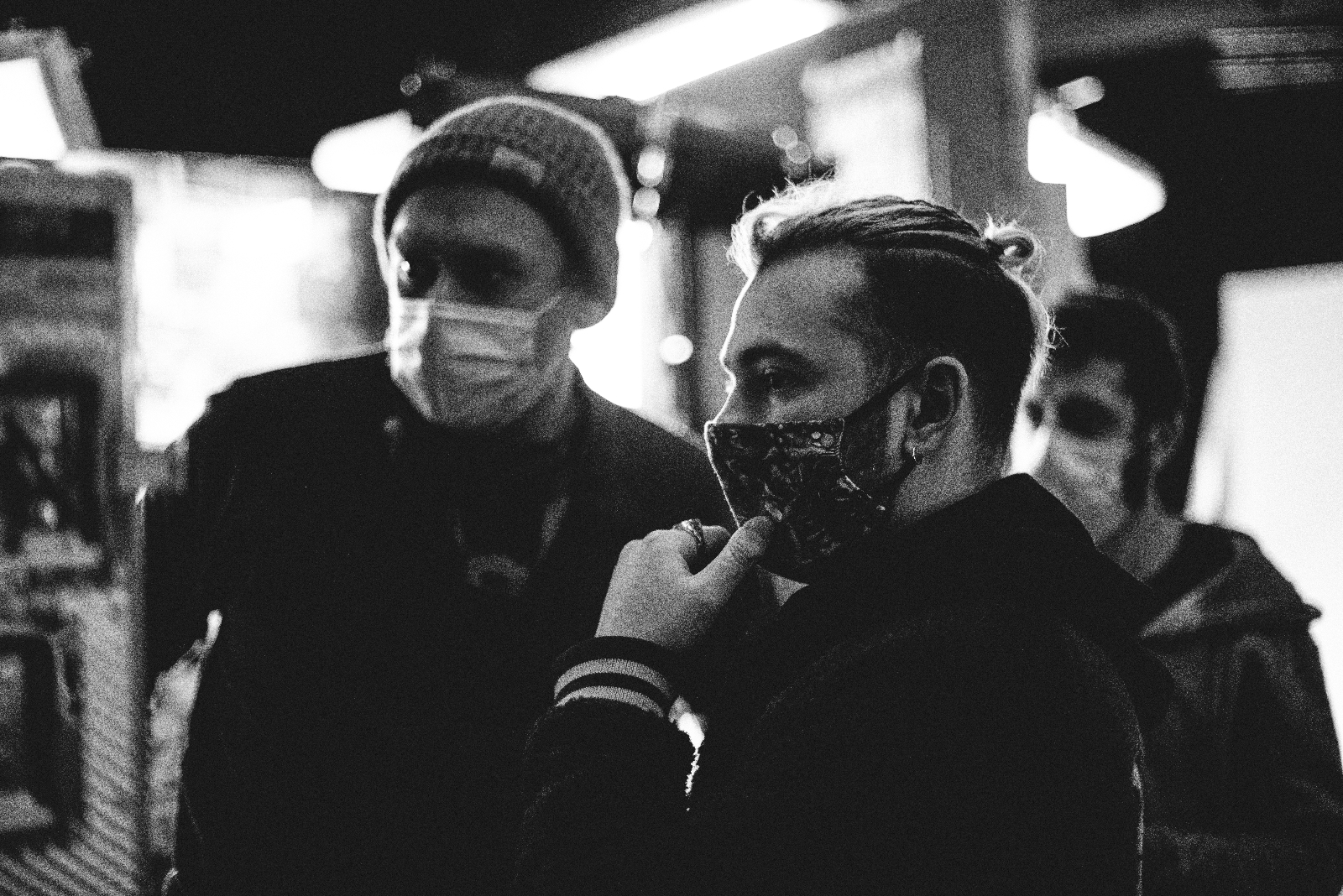
DIY – Do It Yourself.
After admitting to initially thinking, ‘Shit, what the hell am I going to do?’, Oscar set about making the leap into photography a reality. Not only did he send those hundreds of emails, but he reached out to collaborate with bigger directors and photographers. “Collaboration is free and you can learn from anyone and everyone.”
From writing fake music video treatments, to developing his ability to be a problem solver, doing it yourself and not waiting for anyone else proved essential.
“You simply have to go and do. No one is going to give you anything. Kick down those doors yourself. Make people’s creative lives easier by sorting their problems, they’ll then ask you again.” If you want to be a director, you need to start acting like one.
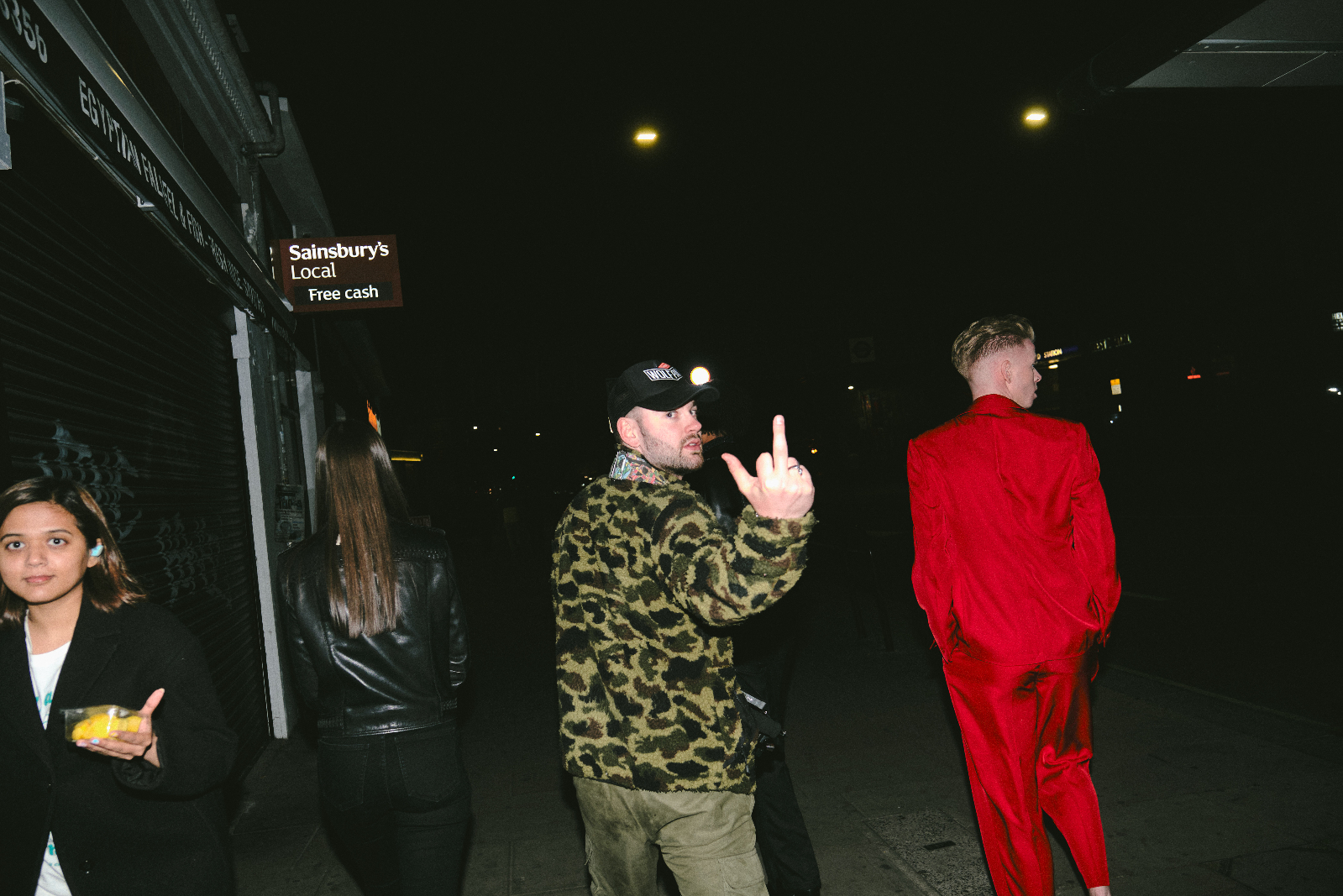
Staying motivated
I ask Oscar an impossibly hard question. How do you stay motivated – how do you get up on days which aren’t so glamorous?
“You just do. I have no idea why I would sit in a room for 16 hours a day, editing in the dark. I think it’s the obsession with baby steps.” Oscar’s love of ‘baby steps’ is profound. It enables him to take it minute by minute and, in focusing on the present, doing his best now is how he can best prepare for the future. “100 baby steps looks like quite a leap a year later.”
Part of staying motivated is also the ability to have a thick skin when you fail. When you get a pitch you have poured yourself into, you’re not always going to get it.
“Within the artist’s world, there is gonna be a bit of you in there,” Oscar admits. “But you can’t be precious, it has to be like water off a duck’s back. Not being precious about your work is so important. Move on. The only photos I am sentimental about are the ones of my family.”
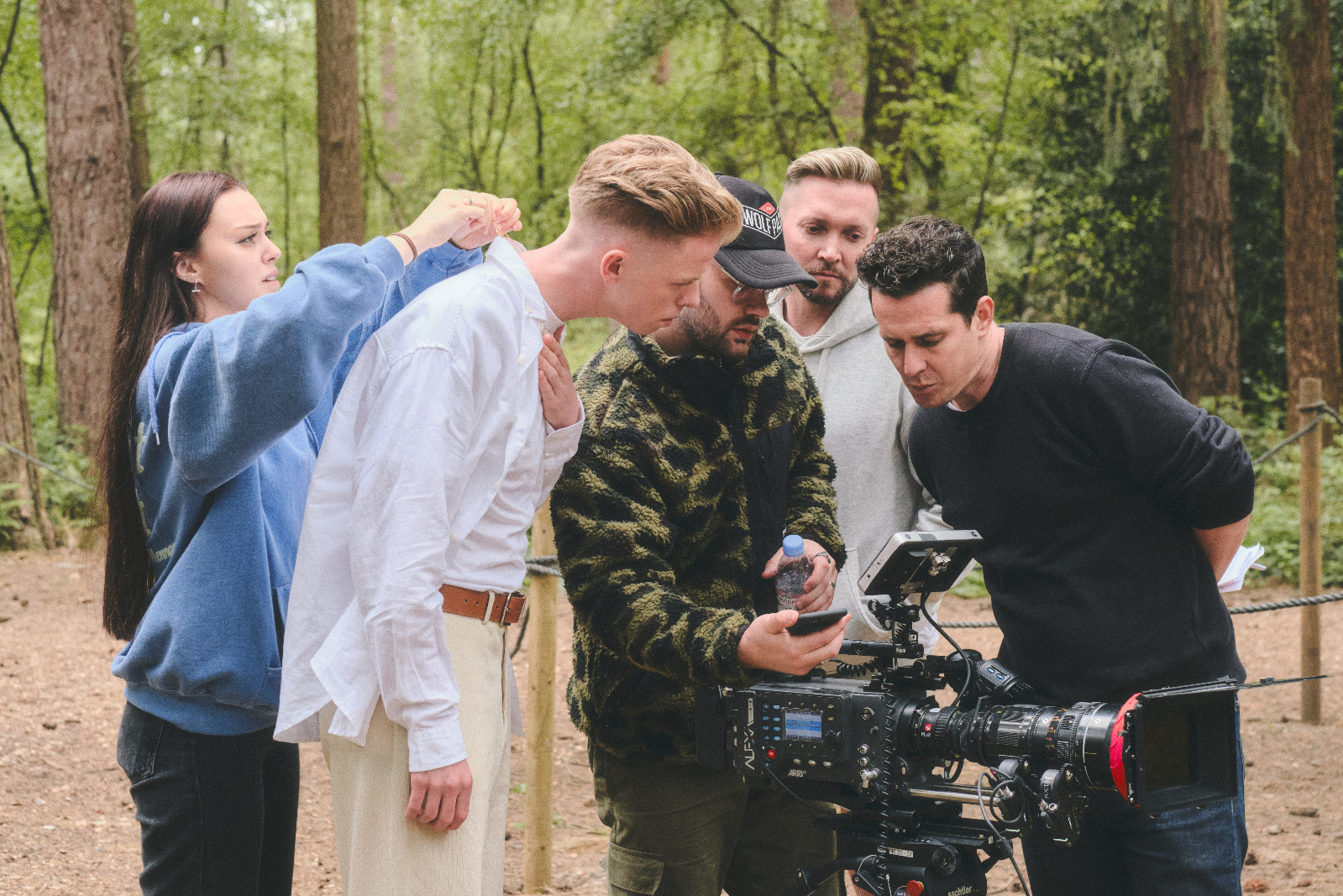
I learn, spending time with Oscar, that no person in the creative industry is short of insecurity in their work. If you feel comfortable you’re not pushing yourself – you should feel challenged constantly.
“Being comfortable with being uncomfortable is a great place to be, and then you can just crack on.”
Treating every job the same
This is a quickie, irrelevant of budget and irrelevant of whether you personally like how it’s progressing, treat everything you do with the exact same pride and passion.
Emotional support
“This is an insular job, you don’t come across as many other directors/photographers as you would like to. It’s collaborative on set, but otherwise you are on your own.”
It is also important to recognise how important emotional support is from family and friends here. Oscar cites this emotional support as part of his success.
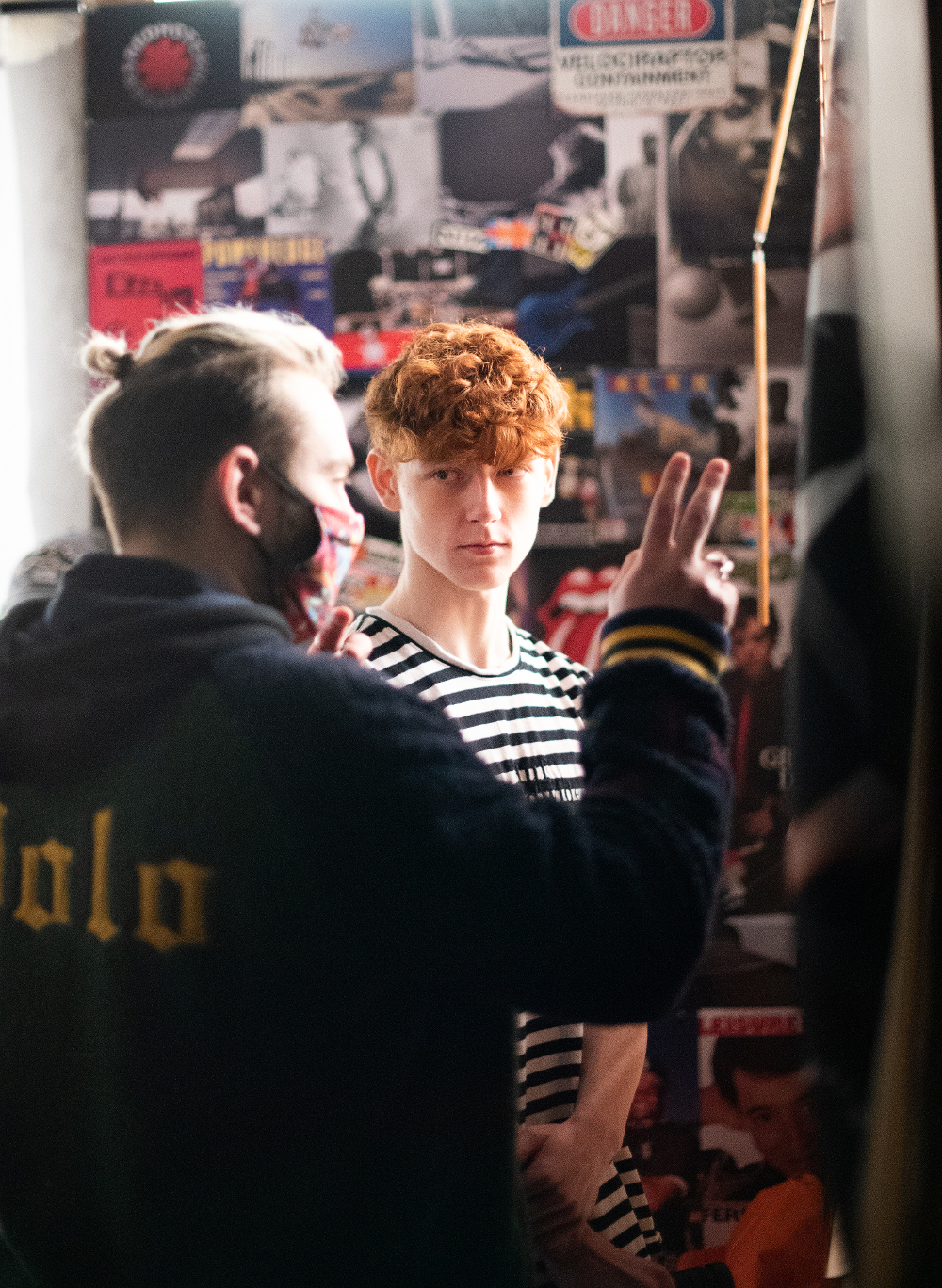
“My dad grew up on an estate, not far from where he lives now. If I go into the local pub, a couple of times people have come up to me and asked if I’m Sean Ryan’s son. They shake my hand, and tell me he made it out. My parents are truly my biggest inspiration. My dad used his art to get out from where he came from, and gave me full support and a foundation for me to go off. I’ll call him twice a day, and talk every idea through with him.
“My mum, too, it’s incredible. I’ll send them first cuts of videos, talk about business, where to put my money, and how to work with people. That is something I could not be more grateful about. It’s unwavering support.”
Working for free
“There just shouldn’t be unpaid internships,” says Oscar. “I love this industry and the work they do, but there is this hypocrisy of making a difference and bringing in new talent from lower socio-economic backgrounds, but then they still put out ads for unpaid internships, which are reserved only for people who have a safety net.”
As well as creating yet another barrier to enter the creative industry, when everyone working on a job is from the same background, it stifles authentic creativity. Sadly, though, there’s no two ways about it – at present you have to be prepared to work for free to start. That doesn’t mean it’s right, but understanding the all too common prerequisite is a good place to start.
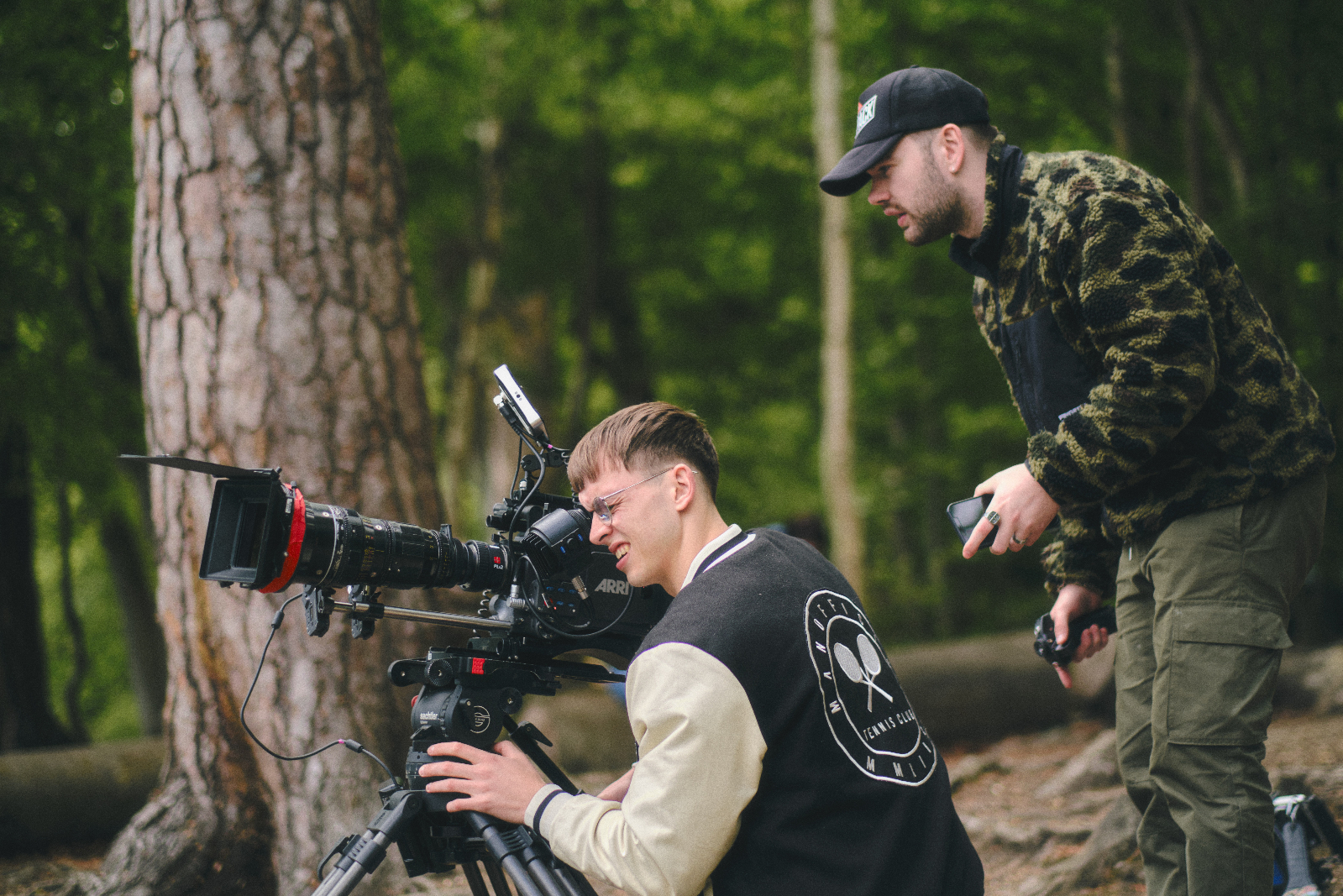
It’s something Oscar is working to change as he is currently setting up a mentorship scheme to support young creatives mostly in youth clubs and schools to create an emerging network. “The idea is simply to get uninterested kids (like I was) interested.”
What would you want to know five years ago?
“Trust your gut. This job is all instinct. And be a good person.”
What would you hope for your future self?
“Being able to create projects that excite me, whatever it is. With people I have a connection with.”
Best advice?
“Just go out and do it, and make a shitload of mistakes. I used to think if I had loads of money I’d pay someone to make loads of mistakes and then tell me about them. I always thought that when I was younger. In reality, you have to make those mistakes yourself, for them to have an impact, and that’s what I’m doing now – it makes me trust myself more each time.”
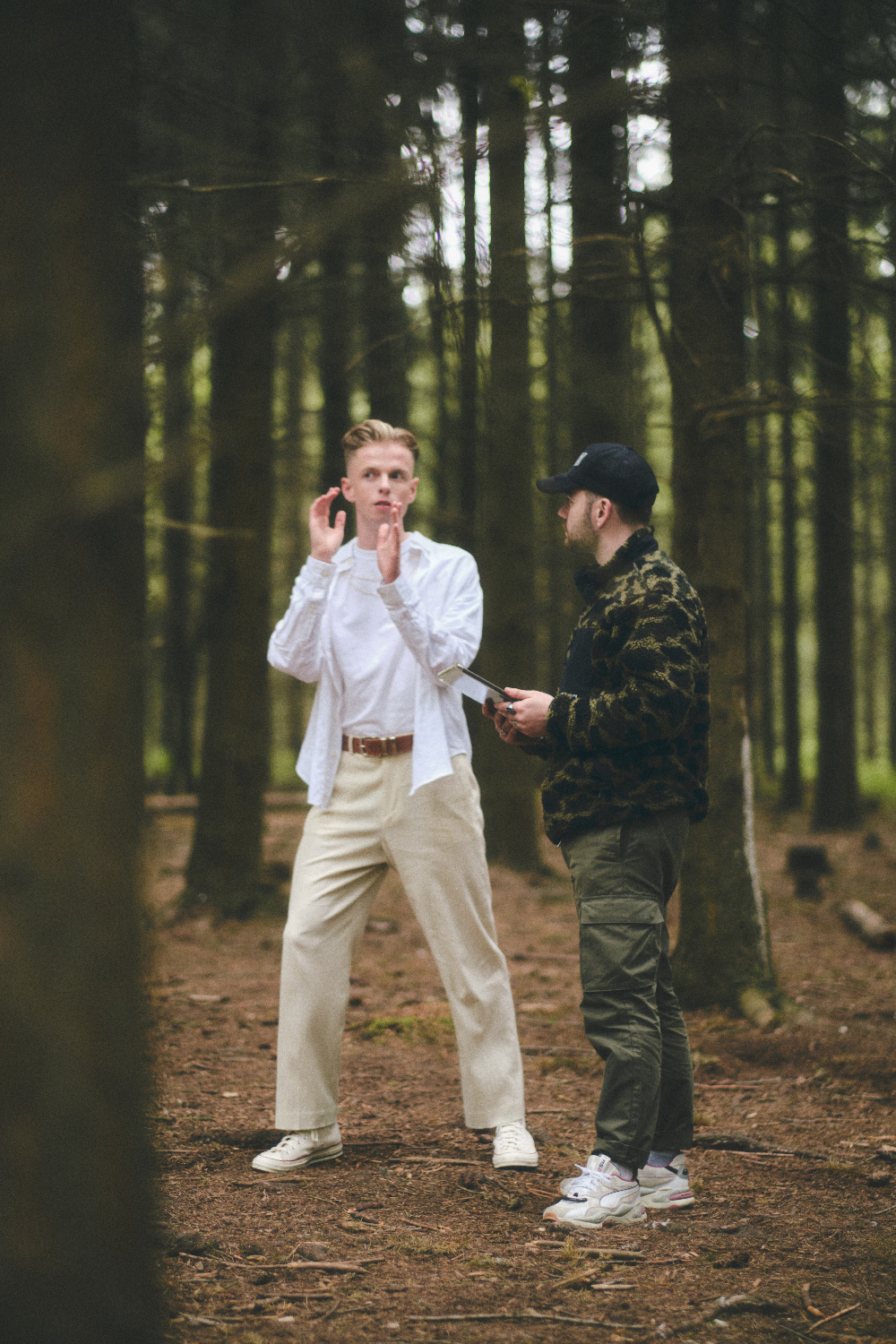
The way Oscar was on set was exactly how he is in everyday life. From the way he shoots and directs, to the way he spoke to every single person on set with such kindness and joy, it showed a person, who knew in his core, this is what he should be doing with his life.
There is a lot to be said for Oscar’s ambitions being realised to get him to this point, and to keep him flying from here.
“And, at the end of it all, there’s nothing better than a cold Guinness with everyone to top off a day on set.”
Oscar details:
Website: https://www.oscarjryan.co.uk/photography
Instagram: @oj.ryan


